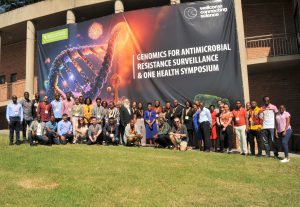General information about the vaccination campaign
The Department of Health is undertaking a mass measles vaccination campaign for children aged between 6 months and 5 years. The planned dates for the campaign are 2-26 May 2017 for Gauteng Province and 12-30 June 2017 for other provinces.
For City of Johannesburg district – dates have been adjusted and will be communicated shortly. In City of Johannesburg, the campaign will include children from 6 months to 15 years.
Dates may be extended, depending on coverage reached.
Is there a measles outbreak?
There have been 17 cases of measles in Gauteng from March – April 2017. These cases follow an outbreak of 31 cases in the Western Cape in January-February 2017. The Western Cape outbreak was controlled by a vaccination campaign in that province, which reached more than 450 000 children. From January to April 2017, there have additionally been 4 cases from North West province, 1 from Eastern Cape, 1 from Mpumalanga and 1 from Limpopo province.
Measles is targeted for elimination from South Africa by 2020, which means that even one case needs to be investigated. If there are more than three cases within one district within one month, this would be considered an unusual cluster of cases.
Where will vaccinations be given?
For children who are not in crèche or nursery school, caregivers must take their child to the vaccination clinic. Clinics, health centres and hospitals will be offering vaccination.
For children in crèche or nursery school, the department of health hopes to visit the schools to offer a convenient vaccination point there. Parents will need to sign an informed consent letter giving permission for the vaccination. Should the crèche not be visited, the caregiver should take the child to their own vaccination clinic.
In the City of Johannesburg district, Gauteng province, the targeted age extends to 15 years. The Department of Health hopes to visit primary schools and high school s in the district to offer convenient vaccination points there. Should a child’s school not be visited, parents should take their child to their own vaccination clinic.
Will children in private schools be included in the campaign?
The Department of health hopes to visit private schools, crèches and nursery schools to offer convenient vaccination points there. Should a child’s school not be visited parents should take their child to a vaccination clinic. If they choose a department of health facility, the vaccination will be free. If they choose a private provider, there will be a charge for vaccination.
If my child is up to date with all their vaccines, must they be vaccinated as part of this campaign?
The aim of mass campaigns is two-fold:
Firstly, to catch up children who may have missed any doses of vaccine. Measles vaccines are the later vaccines in the schedule and sometimes children may have had earlier vaccines but not completed all the doses in the schedule. It is never too late to catch up measles vaccines.
The second aim is to boost immunity in already vaccinated children. Measles vaccines are approximately 95% effective, meaning that the doses given as part of the routine schedule will result in 95 of every 100 children being protected. An additional dose will catch up the remaining 5 of every 100.
Why is measles a serious disease?
Measles is a viral infection, spread from person to person through saliva by coughing, sneezing or being in close contact with an infected person. Symptoms include fever, a rash and a flu-like illness. Complications can include lung infection (pneumonia), diarrhoea, dehydration, blindness, brain infection (encephalitis) or death. Most people recover fully from measles, but complications are unpredictable.
How do mass campaigns work to prevent measles?
Vaccines work in two ways. The first way is that they protect the vaccinated person from developing severe measles disease. Immunization allows the immune system to “see” the weakened measles virus contained in the vaccine, so that the immune system can protect the person the next time they come into contact with the virus.
The second way vaccines work is to prevent the virus spreading to others in the community. For example, if a parent chooses not to vaccinate their child, their child may recover fully from measles. Their child may however spread the virus to a 3 month old baby, who is too young to be vaccinated. The baby may develop complications.
In order to prevent measles spreading, at least 95% (95 of every 100 people) in the community need to be immune. The World Health Organisation recommends periodic mass vaccination campaigns, even in the absence of measles outbreaks, in order to ensure that more than 95% of the community is immune to measles.
Should adults be concerned about measles?
Anyone of any age can catch measles, but complications are more common in children under 1 year of age. Measles vaccine can be given at any age older than 6 months, and there is no harm to additional doses. Missing doses can therefore be caught up at any age. Adults are not part of the target age range for this vaccination campaign, however, and will not be eligible for free vaccine.
If an adult is exposed to a patient with wild type measles, they should see their health provider and receive a measles vaccine booster. It is not necessary for adults to test their immunity status to measles.
Where can I get more information?




